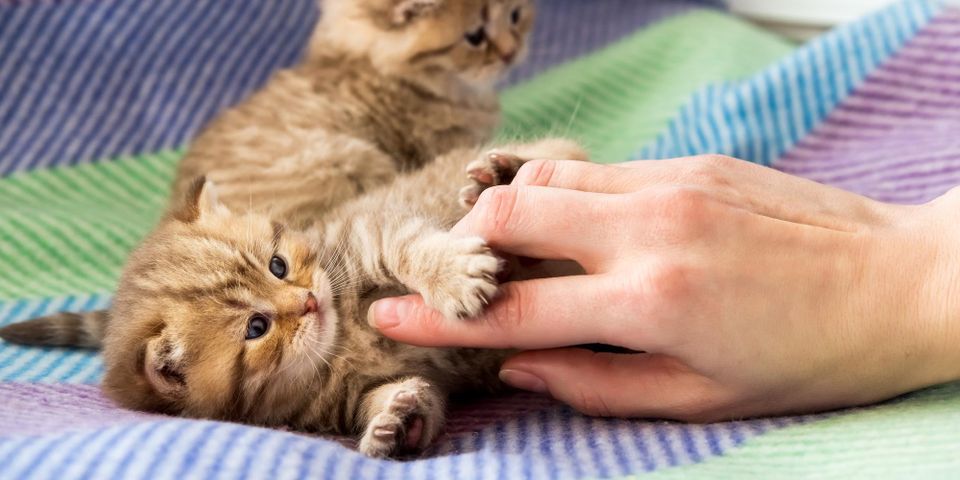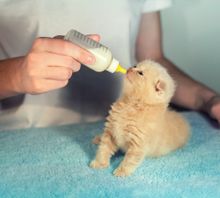
If you recently adopted a kitten, you’ll need to ensure your pet continues to grow into a healthy adult cat. To help get your furry friend’s life started right, here are a few important details you should know about kitten care—and how a veterinarian can help with the process.
What Vaccinations Do Kittens Need?
Kittens require several vaccinations to strengthen their immune systems against serious and potentially life-threatening diseases. At six to eight weeks, they should receive the first FVRCP shot to protect against rhinotracheitis, calicivirus, and feline distemper—common types of cat illnesses. About once every three weeks, your pet should receive an FVCRP booster for a total of three boosters. When they receive the final booster, they should also get their first rabies shot. Your cat should continue to receive vaccination boosters throughout their life, as recommended by your veterinarian.
How Should I Feed My Kitten?
Ideally, a kitten should feed off their mother’s milk until they reach about four weeks of age. However, if you adopt a stray, you will need to nourish them with a milk replacement formula by bottle about once every three to four hours. Consult with your veterinarian to find out how much they should be eating.
 At about four weeks, kittens will wean naturally with their mothers. But if you have a stray, you can wean with a mixture of wet kitten food and formula. In the beginning, introduce the mixture by spoon and then eventually let them lap it out of a bowl. Continue to supplement with formula until they’re eating the new food.
At about four weeks, kittens will wean naturally with their mothers. But if you have a stray, you can wean with a mixture of wet kitten food and formula. In the beginning, introduce the mixture by spoon and then eventually let them lap it out of a bowl. Continue to supplement with formula until they’re eating the new food.
By the fifth or sixth week, your pet should be able to eat dry kitten kibble that is lightly moistened with water. At seven weeks, they should be eating dry kitten kibble exclusively. As they grow older, talk to your veterinarian about your cat’s dietary needs.
What Are Some Ways to Keep Playtime Safe?
Eventually, your kitten will start to play. Monitoring their playtime can help keep them safe, as well as promote bonding. Young cats can get by with simple toys—such as ping pong balls, cardboard toilet paper tubes, and handle-free paper bags. Avoid toys that have small parts that your cat may chew and choke on—such as those with small balls, feathers, or yarn.
If you’re a new cat parent, Dr. Douglas Foreman and Dr. Roberta Mauro at Cherry Hill Dog & Cat Hospital are equipped to help your kitten grow into healthy adult cats. From providing vaccinations, performing spaying and neutering procedures, and offering nutritional guidance, these Elkton, MD, veterinarians will deliver personalized care to protect against common feline health issues. Visit this animal clinic online to learn more about their services or call (410) 398-1331 to schedule an appointment.
About the Business
Have a question? Ask the experts!
Send your question

